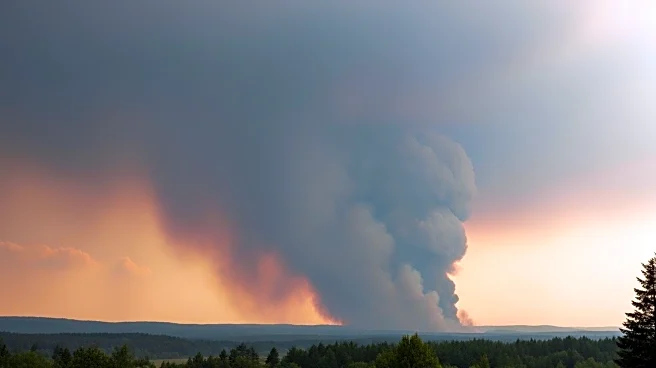What's Happening?
A study published in Nature reveals that smoke from Canadian wildfires in 2023 contributed to 82,000 deaths worldwide, including 22,000 in Europe. The research highlights the severe health impacts of wildfire smoke, which contains toxic particles known as PM2.5. These particles can exacerbate respiratory conditions, as seen in the case of nine-year-old Carter Vigh, who died from an asthma attack aggravated by smoke. The study underscores the need for improved air quality monitoring and public awareness, as current systems may not adequately detect localized pollution levels.
Why It's Important?
The findings emphasize the global health threat posed by wildfire smoke, which can travel vast distances and affect air quality far from the source. The study calls attention to the need for robust air quality monitoring systems and public health initiatives to mitigate the risks associated with wildfire smoke exposure. The research may influence policy decisions regarding wildfire management and air quality standards, as well as drive efforts to increase public awareness and preparedness for smoke-related health risks.
What's Next?
Amber Vigh, Carter's mother, has initiated a project to distribute air quality monitors in Canada, aiming to improve local detection of pollution. The study's findings may prompt governments to enhance air quality monitoring infrastructure and develop strategies to protect vulnerable populations during wildfire events. Researchers may continue to investigate the specific health impacts of wildfire smoke and explore measures to reduce exposure.
Beyond the Headlines
The study highlights the intersection of environmental and public health issues, raising questions about the adequacy of current air quality monitoring systems. It underscores the importance of community-driven initiatives in addressing gaps in public health infrastructure. The research may lead to increased scrutiny of wildfire management practices and their implications for global health.











